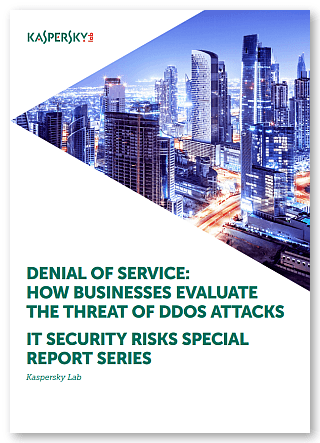
Quarterly IT Security reports: a roundup
Kaspersky Lab’s quarterly IT Threat Evolution report is in and so is Kaspersky DDoS Intelligence Report for Q3 2015. Let’s take a look into what happened this last quarter.
1247 articles

Kaspersky Lab’s quarterly IT Threat Evolution report is in and so is Kaspersky DDoS Intelligence Report for Q3 2015. Let’s take a look into what happened this last quarter.

As a follow-up to our recent foray into ransomware, we’re pleased to offer a fundamental practical guide on how to deal with ransomware.

“Good-faith” car hacking and mobile device “jailbreaking” are now on their way to becoming legal in the U.S. The Library of Congress’ triennial exemptions to the anti-circumvention rules within the Digital Copyright Millennium Act (DCMA), released on October 27th.

An FBI representative speaking at the 2015 Boston Cyber Security Summit gave a piece of advice on ransomware which the San Francisco Chronicle called “disquieting”: he said it’s recommended victims
Early next year Kaspersky Lab will host yet another Security Analyst Summit, this time in Tenerife, Spain.

The latest research by Kaspersky Lab and B2B International shows that 33% of financial services organizations don’t offer customers a secure channel for all of their online payments, despite the fact that most have noticed a significant rise in customers making online financial transactions.

Since mid-October, several major software vendors have released a number of security announcements and updates, most of them serious or outward critical.

Kaspersky Lab has patented a new technology designed to prioritize data-scanning tasks on virtual machines. The technology significantly speeds up processing of high-priority scan requests in real time, while maintaining virtual machine performance.

Apple users say their Macs are a more secure working tool than Windows-based PCs. Unfortunately, it’s not exactly true.

A new survey shows that businesses worldwide increasingly lose their faith in third-party suppliers. The reason? The increasing number of IT security incidents that they cause.

A botnet behind Dridex, a sophisticated banking malware stealing credentials of online bank accounts worldwide, are down.

New research by Kaspersky Lab shows that in the last 12 months every fourth Internet user had at least one of their online accounts hacked.

Threatpost had a story last week describing a disruption of a large ransomware campaign connected to the Angler exploit kit. Experts from Cisco’s Talos security group “effectively nillified 50 percent of the exploit kit’s activity”.

Kaspersky Lab is pleased to announce the continuation of its sponsorship contract with the Scuderia Ferrari Formula One racing team. The new five-year contract will be valid from 2017 until 2021.
In the fierce storm of active APT campaigns there is always something in motion. Researchers pin down and catalogue new threats all the time, but old names occasionally pop up,

A recent study of attitudes toward information risk shows that one in four (24%) IT specialists are concerned about the growing complexity of IT infrastructures and see this trend as a threat to security.

Have you ever considered your smart office from an IT security viewpoint? Did it occur to you that by equipping your office with devices designed to provide life’s comforts, cybercriminals are handed even more opportunity to gain access to your corporate information and even to cause physical damage?

Kaspersky Lab recently launched an online quiz “Are you cyber-savvy”, and the first results are in. While oriented towards end-users, this quiz’s results may serve as another alert for businesses, especially those that are online-based.

While the total amount of companies reporting to experience DDOs attacks is more or less stable over recent years, in 2015 there was a slight increase in the number of businesses considering them the most damaging type of cyberincidents.
Two young individuals were arrested by Dutch police on suspicion of involvement in CoinVault ransomware attacks.

If the idea of “hacking-back” against cybercriminals who have harmed you or your company has seized you, your executive team, or your spouse as a reasonable thing to do, read